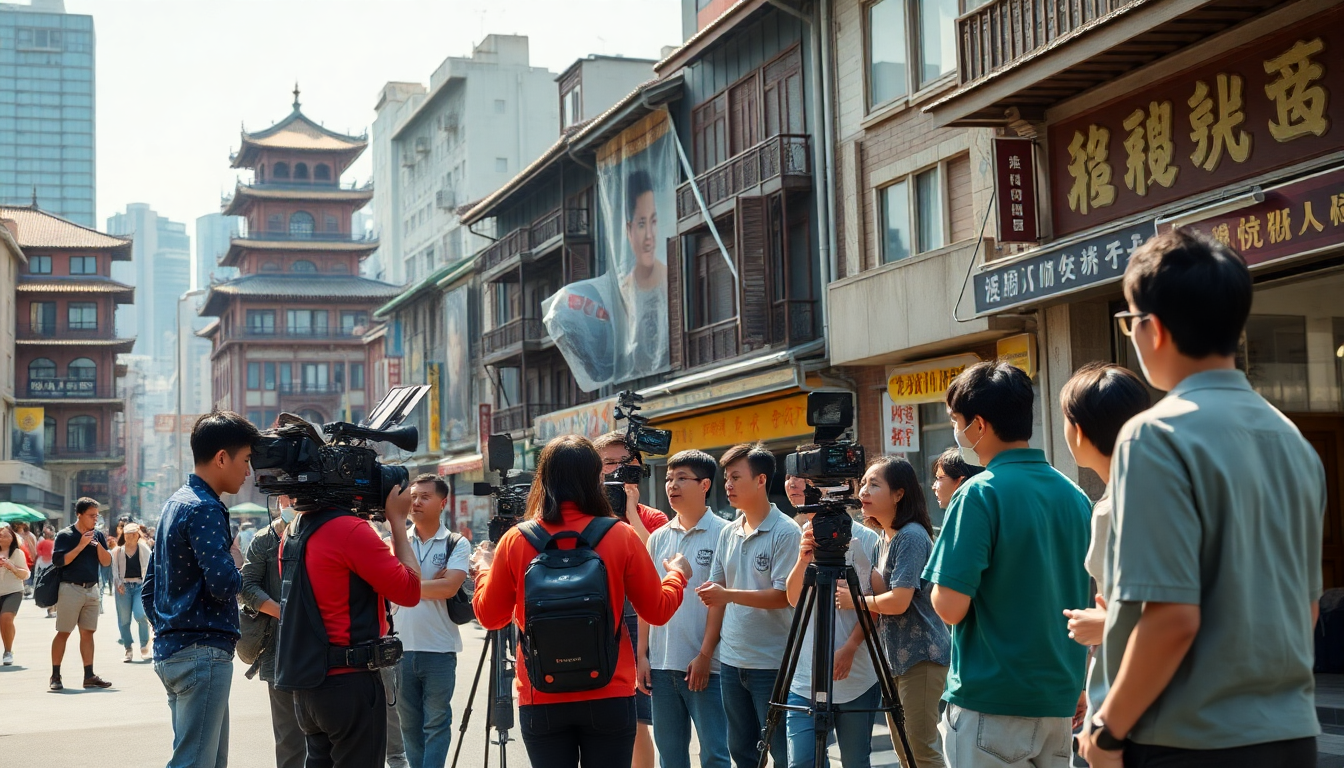Table of Contents
The film industry is constantly changing, with directors daring to shake up traditional storytelling norms. A recent standout is the premiere of director Cao Baoping’s latest film, “One Wacky Summer,” at the 27th Shanghai International Film Festival. This film marks a bold new direction for Cao, moving away from his well-known crime thrillers into the realm of black comedy. Set in the vibrant city of Tianjin, it captures the local dialect and humor—elements that have been largely unexplored in mainstream cinema. More than just a source of entertainment, this film serves as a cultural bridge, bringing regional tales to a wider audience.
Cao Baoping’s Creative Evolution
Director Cao Baoping has built a reputation for crafting gritty crime dramas that probe deep into the complexities of human nature. Yet, with “One Wacky Summer,” he’s blending crime with humor, signaling an exciting new chapter in his creative journey. During a press conference at the festival, Cao shared his wish to create a lighter, more enjoyable film after stepping away from directing for a couple of years. This tonal shift mirrors a larger trend in the film industry, where audiences increasingly crave escapism and humor during tough times. Isn’t it fascinating how art evolves to reflect society’s mood?
The film stars Guo Qilin, who teams up with Cao again after their successful collaboration on the series “Escape from the Trilateral Slopes.” The ensemble cast also features Qi Xi, Sun Anke, and rising star Hu Langquan. Each actor brings their own unique flair, contributing to a lively portrayal of Tianjin’s culture and humor. As a native of Tianjin, Guo emphasizes the importance of showcasing his hometown’s rich traditions and customs, hoping to resonate with viewers far beyond the region. Can you imagine the pride of representing your hometown on such a significant platform?
The Cultural Significance of the Tianjin Dialect
One of the film’s standout features is the use of the Tianjin dialect, showcasing the director’s commitment to authenticity. Cao has expressed his fascination with this dialect and the rapid storytelling style known as “kuaiban.” He points out that this regional perspective is often overlooked in cinema, making it a breath of fresh air in the film landscape. By weaving in local humor and idiomatic expressions, the film not only entertains but also educates audiences about the culture of Tianjin. Wouldn’t it be great for more films to dive into the rich tapestry of local cultures?
However, mastering the dialect wasn’t easy for everyone involved, especially for some cast members from outside the region. Take Sun Anke, for example—she found the Tianjin dialect particularly challenging to grasp, showcasing the complexity and richness of China’s linguistic diversity. This aspect of the production highlights the cast and crew’s dedication to authentically representing the region’s culture. Isn’t it inspiring to see such commitment to preserving local heritage in storytelling?
Looking Ahead: The Future of Black Comedy
As “One Wacky Summer” competes in the Shanghai International Film Festival, it embodies a broader trend in cinema that embraces regional storytelling and humor. The film reflects the resilience of Tianjin’s residents, known for finding joy even in adversity. This characteristic aligns perfectly with the film’s comedic tone, suggesting that laughter can be a powerful coping mechanism in tough times.
As the film industry navigates global challenges, the rise of black comedy offers a unique lens that resonates with audiences seeking both entertainment and cultural insight. The success of films like Cao’s could pave the way for regional stories to take center stage on the global platform, celebrating the diverse experiences and humor that enrich China’s cultural landscape. So, what do you think—could black comedy be the next big thing in entertainment?


